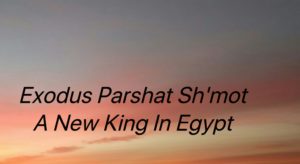 You would think that to attack a minority community for political purposes would take time, preparation, and an extensive culture change. When we make claims to expand human rights, for example, we often get a response that we need time. Cultures, the argument goes, change slowly. To give women equal rights has taken a really long time. During that time the police arrested women, the legal system imprisoned them, politicians mocked them. To end slavery we had a civil war. And we needed even more time for “culture change” to end segregation. The common narrative has been that to make change, time is needed so that people would get used to new ideas. Indeed, American women are still waiting for 38 states to ratify the ERA.
You would think that to attack a minority community for political purposes would take time, preparation, and an extensive culture change. When we make claims to expand human rights, for example, we often get a response that we need time. Cultures, the argument goes, change slowly. To give women equal rights has taken a really long time. During that time the police arrested women, the legal system imprisoned them, politicians mocked them. To end slavery we had a civil war. And we needed even more time for “culture change” to end segregation. The common narrative has been that to make change, time is needed so that people would get used to new ideas. Indeed, American women are still waiting for 38 states to ratify the ERA.
The politics of asking us to wait for some mythical arrival of “culture change,” such as the right to say Black lives matter, flies in face of changes in the reverse. When it comes to restricting human rights change can happen in a blink of eye. No need to wait for culture to lead.
The opening chapters of the book of Exodus offer the first biblical account of a ruler who suddenly turns on a minority group. The swift change stands before us, fully grown, in one sentence and few words: “There arose a new king in Egypt who did not know Joseph.” So much of the king’s sudden attack hinges on the last part of the verse. For the new Pharaoh, to not know Joseph is a key ingredient. He needs to “not know Joseph” who was second in command to an earlier Pharaoh. Not knowing Joseph is necessary in order to dehumanize Joseph’s people, to describe them as disloyal Israelites, a threatening other. To accuse them of treasonous intentions Pharaoh must erase Joseph’s loyalty to a previous Pharaoh. Joseph, the most prominent Israelite is a proxy for his community that Pharaoh is planning to demonize as a disloyal minority. Joseph’s once large family has now become a sizable community in Egypt. The king doesn’t like minorities.
Pharaoh plots to let the Israelites know that they are no longer welcome in a place that they have lived for some four hundred years. Pharaoh says, Let’s pull a clever one over them. Let’s turn them into a potential “enemy of the people” so that we can make their lives miserable. Pharaoh sets his clever trap in a hypothetical accusation of fake reasoning, “in case of war or invasion by a strong enemy the Israelites could join the enemy.”
This is how Pharaoh turns a group of residents into a band of traitors. It is a clever trap. Pharaoh places the minority group in a hypothetical situation, impossible to refute. How could they convince the king that all they want is just to have a decent life? What could they say, that during four hundred years of residency in Egypt they have shown no evidence of rebellion or insubordination? The Exodus narrative demonstrates the Israelites’ impossible position. They have done nothing wrong. It is the single fact of being different that makes them a target. Pharaoh’s accusation is about demographics and hatred, there are too many of them and he just doesn’t like them. From then on we witness his escalation of systematic/systemic oppression.
Otherizing a minority group can happen in an instant. In our own time a swift defamation of a minority group can take no longer than coming down an escalator at Trump Tower. Has there been no resistance? The book of the Exodus does give us the first acts of civil disobedience in the bible. Parshat Sh’mot highlights an early resistance to tyranny in the courage of women. We read of the two midwives, Shifrah and Puah who refuse the king’s decree to kill the Israelite babies and are confronted by him. We encounter the daughter of Pharaoh who sees the baby and immediately says that he must be a Hebrew boy. In the royal palace she plants resistance. She takes the baby, names him Moses and raises him where more than one Egyptian woman must has known that he was an Israelite. Between the king’s cruelty and the suffering of a minority community the women of courage have taken the side of compassion and decency.
Tomorrow, in synagogues around the country we will have the opportunity to read of the moment of choice in Egypt, so that we too can choose and we must resist. We must stand with tarnished/suffering minority groups and say yes to DACA, yes to undocumented hard-working immigrants, yes to asylum seekers, and yes to children who come to our borders with so much hope for a better life. All of us in this country can decide that here and around the world we choose sides. We are/will be like Shifrah, Puah, and Pharaoh’s daughter whom the sages named, Batyah, daughter of God.